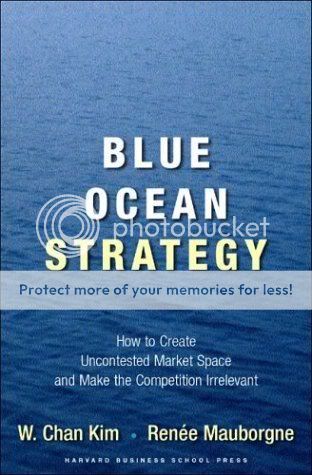Asimov’s Three Laws of Robotics
First law: A robot may not, through its actions or inactions, allow a human to come to harm.
Second law: A robot must obey any order given to it, unless in contradiction of the First Law.
Third law: A robot must protect its own existence, unless in contradiction of the First or Second Law.
Barnum’s Law — You’ll never go broke underestimating the intelligence of the American public.
Named for P. T. Barnum, close to H. L. Mencken quotation.
Benford’s Law of Controversy — Passion is inversely proportional to the amount of real information available.
Bernard’s Law – When the people own the money, they control the government. When the government owns the money, it controls the people.
Coined by Bernard von NotHaus, monetary architect of the Liberty Dollar.
Brooks’s Law — Adding manpower to a late software project makes it later.
Named after Fred Brooks — author of the well known tome on project management, The Mythical Man-Month.
Callahan’s Law — Shared pain is lessened; shared joy, increased — thus do we refute entropy.
Coined by Mike Callahan in Spider Robinson’s Callahan’s Series.
Clarke’s Three Laws. Formulated by Arthur C. Clarke.
o First law: When a distinguished but elderly scientist states that something is possible, he is almost certainly right. When he states that something is impossible, he is very probably wrong.
o Second law: The only way of discovering the limits of the possible is to venture a little ways past them into the impossible.
o Third law: Any sufficiently advanced technology is indistinguishable from magic.
Dilbert Principle — The most ineffective workers are systematically moved to the place where they can do the least damage: management.
Coined by Scott Adams, author of the comic strip Dilbert.
Duverger’s Law — Winner-take-all electoral systems tend to create a two party system, while proportional representation tends to create a multiple party system.
Named after Maurice Duverger.
Finagle’s Law — Anything that can go wrong, will — at the worst possible moment.
Fudd’s First Law of Opposition — If you push something hard enough, it will fall over.
Posited by the Firesign Theatre in “I Think We’re All Bozos on This Bus (1971)”.
Goodhart’s Law — Once an indicator or other surrogate measure is made a target for the purpose of policy, then it will lose the information content that would qualify it to play such a role.
Coined by economist Charles Goodhart.
Gresham’s Law — Bad money drives good money out of circulation.
Coined in 1858 by British economist Henry Dunning Macleod, and named for Sir Thomas Gresham (1519–1579). Earlier stated by others, including Nicolaus Copernicus.
Hanlon’s Razor — Never attribute to malice that which can be adequately explained by stupidity.
Named after Robert J. Hanlon, although there is some debate.
Harshaw’s Law — Daughters can use up ten percent more than a man can make in any normal occupation, regardless of the amount.
Coined by Jubal Harshaw in Robert A. Heinlein’s Stranger in a Strange Land.
Herblock’s Law – If you like it, they will stop making it.
Hotelling’s Law — Under some conditions, it is rational for competitors to make their products as nearly identical as possible. Named after Harold Hotelling.
Hutber’s Law — Improvement means deterioration.
Coined by financial journalist Patrick Hutber.
Kerckhoffs’ Principle — In cryptography, a system should be secure even if everything about the system, except for a small piece of information — the key — is public knowledge.
Stated by Auguste Kerckhoffs in the 19th century.
Keynes’s Law — Demand creates its own supply.
Attributed to economist John Maynard Keynes, and contrasted to Say’s law.
Kuta’s Revelation — All forms of religion are based on faith in faith itself as a self-administered psychological placebo.
From the Selfbook (2007).
Ko?akowski’s Law — For any given doctrine that one wants to believe, there is never a shortage of arguments by which to support it.
Polish philosopher Leszek Ko?akowski
Linus’s Law — Given enough eyeballs, all bugs are shallow.
Named for Linus Torvalds, initiator of the kernel of the GNU/Linux operating system.
Littlewood’s Law — Individuals can expect miracles to happen to them at the rate of about one per month.
Coined by Professor John Edensor Littlewood.
Locard’s Exchange Principle — With contact between two items, there will be an exchange
Premise of forensics named after Edmond Locard
Metcalfe’s Law — In network theory, the value of a system grows as approximately the square of the number of users of the system.
Framed by Robert Metcalfe.
Moore’s Law — The complexity of an integrated circuit will double in about 24 months.
Stated in 1965, though not as a law, by Gordon E. Moore, later a co-founder of Intel.
Morton’s Fork — A person who lives in luxury and has clearly spent a lot of money must obviously have sufficient income to pay as tax. Alternatively, a person who lives frugally and shows no sign of being wealthy must have substantial savings and can therefore afford to pay it as tax.
Named after John Morton, tax collector for King Henry VII of England.
Murphy’s Law — If anything can go wrong, it will. Alternately, If it can happen, it will happen.
Ascribed to Major Edward A. Murphy, Jr.
Murphy’s Law (alternate) — If there are two ways to do something, and one of them will result in a disaster, an untrained individual will invariably choose the wrong way.
Also ascribed to Major Edward A. Murphy, Jr.
Ockham’s Razor — Explanations should never multiply assumptions without necessity. When two explanations are offered for a phenomenon, the simplest full explanation is preferable.
Named after William of Ockham. Also known as Occam’s Razor: Entia non sunt multiplicanda praeter necessitatem.
Orgel’s Rules. Formulated by evolutionary biologist Leslie Orgel.
o First rule: Whenever a spontaneous process is too slow or too inefficient a protein will evolve to speed it up or make it more efficient.
o Second rule: Evolution is cleverer than you are.
Pareto Principle — For many phenomena, 80% of consequences stem from 20% of the causes.
Named after Italian economist Vilfredo Pareto, but framed by management thinker Joseph M. Juran.
Parkinson’s Law — Work expands so as to fill the time available for its completion.
Coined by C. Northcote Parkinson.
Technician’s Corollary — No matter how big the data storage medium, it will soon be filled.
Peter Principle — In a hierarchy, every employee tends to rise to his level of incompetence.
Coined by Laurence J. Peter.
Pittendreigh’s Law of Planetary Motion — The perception of time passing more quickly has nothing to do with the fact of my own aging process. It’s the fault of the Solar System! The Earth is simply moving around the sun faster every year.
Putt’s Law — Technology is dominated by two types of people: those who understand what they do not manage, and those who manage what they do not understand.
Coined by Archibald Putt.
Reed’s Law — The utility of large networks, particularly social networks, scales exponentially with the size of the network. Named after David P. Reed.
Reilly’s Law — People generally patronize the largest mall in the area.
Rock’s Law — The cost of a semiconductor chip fabrication plant doubles every four years.
Named after Arthur Rock.
Say’s Law — Demand cannot exist without supply.
Often stated as Supply creates its own demand. Attributed to economist Jean-Baptiste Say and contrasted to Keynes’s Law.
Stigler’s Law of Eponymy — No scientific discovery, not even Stigler’s law, is named after its original discoverer.
Strathmann’s Law of Program Management – Nothing is so easy as the job you imagine someone else doing.
Sturgeon’s Law — Nothing is always absolutely so.
Derived from a quote by science fiction author Theodore Sturgeon.
Wirth’s law — Software gets slower faster than hardware gets faster.
Zipf’s Law — For many different kinds of things, their frequency is observed to be approximately inversely proportional to their rank order.
Named after George Kingsley Zipf.










